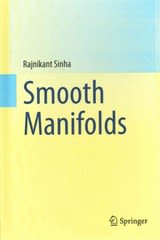Question
Americans spend an average of 1925 minutes per week watching television. Do Experimental Psychology students at KSU differ from the national average? In a recent
Americans spend an average of 1925 minutes per week watching television. Do Experimental Psychology students at KSU differ from the national average?
In a recent semester, I went around the room and had each student call you the number of minutes he or she watched television per week. These students constituted my sample of KSU Experimental students.
These are the answers I received from the 15 students who were present that day:
60, 360, 600, 900, 300, 120, 30, 750, 1000, 240, 90, 300, 500, 900, 400
1) What is NOT appropriate wording for the alternative research hypothesis for this study?
a. KSU Experimental Psychology students watch a different amount of TV per week than the national average
b. KSU Experimental Psychology students watch less or more TV per week than the national average
c. KSU Experimental Psychology students watch a different number of minutes of TV per week than the national average
d. The number of minutes KSU Experimental Psychology students watch TV per week differs from the national average
e. KSU Experimental Psychology students watch the same amount of TV per week as the national average
2) What is NOT appropriate wording for the null research hypothesis for this study
a. KSU Experimental Psychology students watch the same number of minutes of TV per week as the national average
b. The number of minutes KSU Experimental Psychology students watch TV per week does not differ from the national average
c. KSU Experimental Psychology students watch a different amount of TV per week than the national average
d. KSU Experimental Psychology students watch the same amount of TV per week as the national average
3) What is the alternative statistical hypothesis for this study
a. TV =1925
b.KSU =400
c. KSU 400
d. KSU 1925
e. KSU =1925
f. TV 1925
4) What is the null statistical hypothesis for this study?
a. TV 1925
b. TV =1925
c. KSU 400
d. KSU =400
e. KSU 1925
f. KSU =1925
Set the signficance level at =.05
Select and compute the appropriate statistical test in SPSS.
1) In the output box labeled One-Sample Test, what is listed as the value of p and what decision does this imply you should make?
Remember: The label for the cell containing the p-value is labeled Sig. (2-tailed)
a. .000, so I should reject the null hypothesis
b. .000, so I should retain the null hypothesis
2) What was the basis for deciding whether to retain or reject the null hypothesis?
a. the t-obtained value was so large
b. the p value was less than the level at which we set alpha
c. the p value was more than the level at which we set alpha
d. the p value was the same as the level at which we set alpha
3) please write a complete paragraph using the exact wording provided. In those locations where number signs (##) are placed, you should substitute the correct values. In locations where choices are given as to which word(s) should be used, use only the appropriate word(s) and leave out the other choices. For example, if the passage showed they ate less/the same/more food, and the results were that they ate less food, then this part of the results should read: they ate less food.
You will be graded based on putting the correct numbers and words in the correct locations and on using the correct formatting (rounding, spacing, punctuation, italics). You will lose one point for each error.
Data were analyzed using SPSS (Version 25) statistical software. A one-sample t test compared television viewing time of KSU Experimental Psychology students to the national average. There was a significant/no difference between the student sample (M = ##, SD = ##) and the national average ( = ##), t(##) = ##, p =/ ##.Thus, KSU Experimental Psychology students watched less/the same/more television than/as the national average.
Step by Step Solution
There are 3 Steps involved in it
Step: 1

Get Instant Access to Expert-Tailored Solutions
See step-by-step solutions with expert insights and AI powered tools for academic success
Step: 2

Step: 3

Ace Your Homework with AI
Get the answers you need in no time with our AI-driven, step-by-step assistance
Get Started


